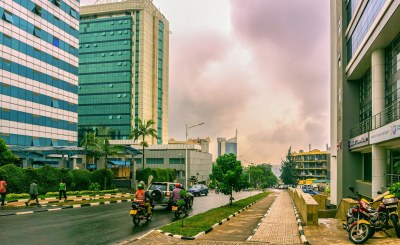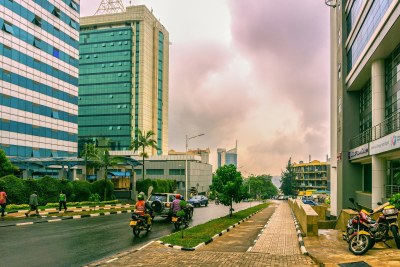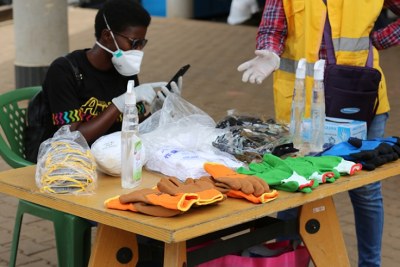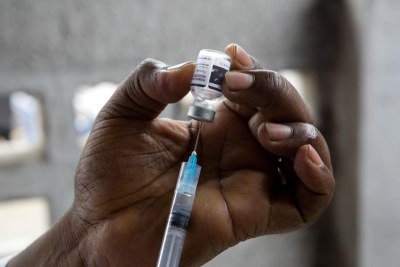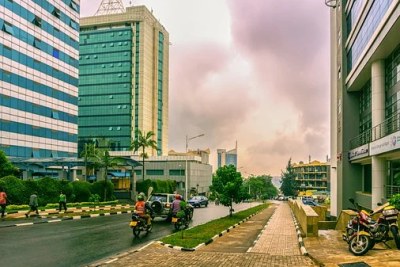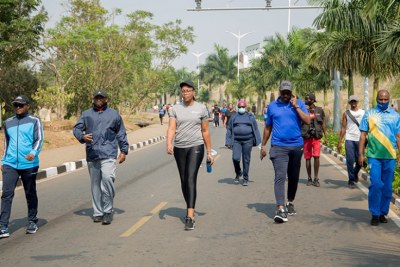-
Rwanda: How Covid-19 Lockdowns and Car-Free Days Affected Air Pollution in Kigali
The Conversation Africa, 11 August 2021
Rising levels of vehicle traffic, industrial activity and urban sprawl are contributing to rising levels of air pollution across the global South. This is particularly the case in… Read more »
-
Rwanda: Pre-Primary and Lower Primary Schools to Resume On August 2
New Times, 31 July 2021
The Ministry of Education has directed that schools will reopen on Monday, August 2 for primary and secondary schools, and August 9 for higher learning institutions located in… Read more »
-
Rwanda: Fresh Lockdown Dims Rwandan Banks' Hopes
East African, 28 July 2021
Many clients who got moratoriums from banks last year had resumed their loan servicing, but the current lockdowns could puncture their recovery. Read more »
-
Rwanda: Refurbishment of Car-Free Zone to Be Complete By Mid-July
New Times, 30 June 2021
The refurbishment of the car-free zone in Kigali's central business district is set to be complete by mid-July, Marie-Solange Muhirwa, the city's Chief Urban Planner, has… Read more »
-
Rwanda: Kigali's Car-Free Zone to Get a Facelift, Rebranded
New Times, 16 March 2021
The City of Kigali has launched activities to regenerate the capital's car-free zone into a green and recreational zone with more attractive features. Read more »
The Covid-19 Silver Lining On Rwanda's Environment
In Capital City Kigali, the number of residents has surged from less than 500,000 in 2000, to more than 1 million in 2021. It is set to increase to nearly 2 million by 2030. At the same time, vehicle numbers in the city have increased from just 55,000 in 1999 to more than 200,000 in 2019.
Air pollution is the fourth highest risk factor for premature mortality worldwide. And there is growing recognition that even at relatively low levels, air pollution can cause significant health impacts, such as heart attacks and strokes.
Started in 2016, car-free days is where major roads are blocked off to provide space for collective exercise sessions to promote healthy living. Initially run once a month in 2018, the car-free days were made fortnightly and extended to secondary cities across Rwanda.
Lockdowns to prevent the spread of the novel coronavirus also had a dramatic effect on traffic, creating an opportunity to explore its contribution to air quality. Using Google mobility data - estimates of travel activity developed by Google using mobile telephone data - travel activity was reduced by more than 80% during the full lockdown and by 41% during the partial lockdown.
The full lockdown, which ran from March to May 2020, required all traffic -excluding emergency vehicles- to stay off the streets. This reduced air pollution by around 33%. The consequent partial lockdown, which allowed cars but not motorcycles, reduced air pollution by around 21%, write Andrew Sudmant and Egide Kalisa for The Conversation.
InFocus
-
The government has resolved that current measures, including a total lockdown in Kigali and some eight districts in the country, will be extended for five more days until July 31, ... Read more »
-
Rwanda's response to the Covid-19 pandemic saw the lockdown in the capital Kigali, the closure of schools and restrictions on sport and religious gatherings. With the vaccine ... Read more »
-
The government has kicked off the national vaccination programme for Covid-19, starting with healthcare workers as part of the high-risk groups, the health ministry has said. A ... Read more »
-
An acute surge in Covid-19 cases specifically in Kigali, has necessitated another lockdown. Under the new guidelines, citizens are urged to significantly reduce social interactio Read more »
-
Rwanda's bi-monthly mass physical sports exercise and car-free day were among activities which were suspended in March 2020, to contain the spread of the Covid-19 pandemic after ... Read more »
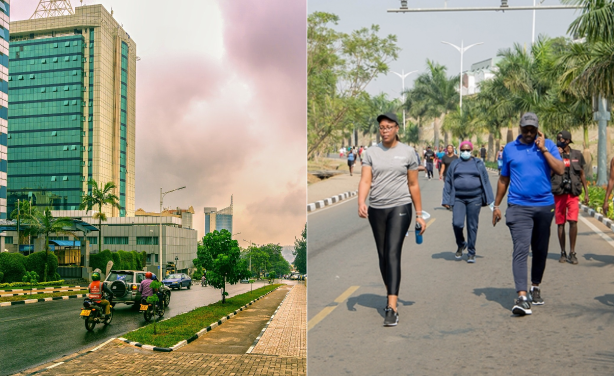
Empty streets in Kigali City (left) and car-free day participants (right).
